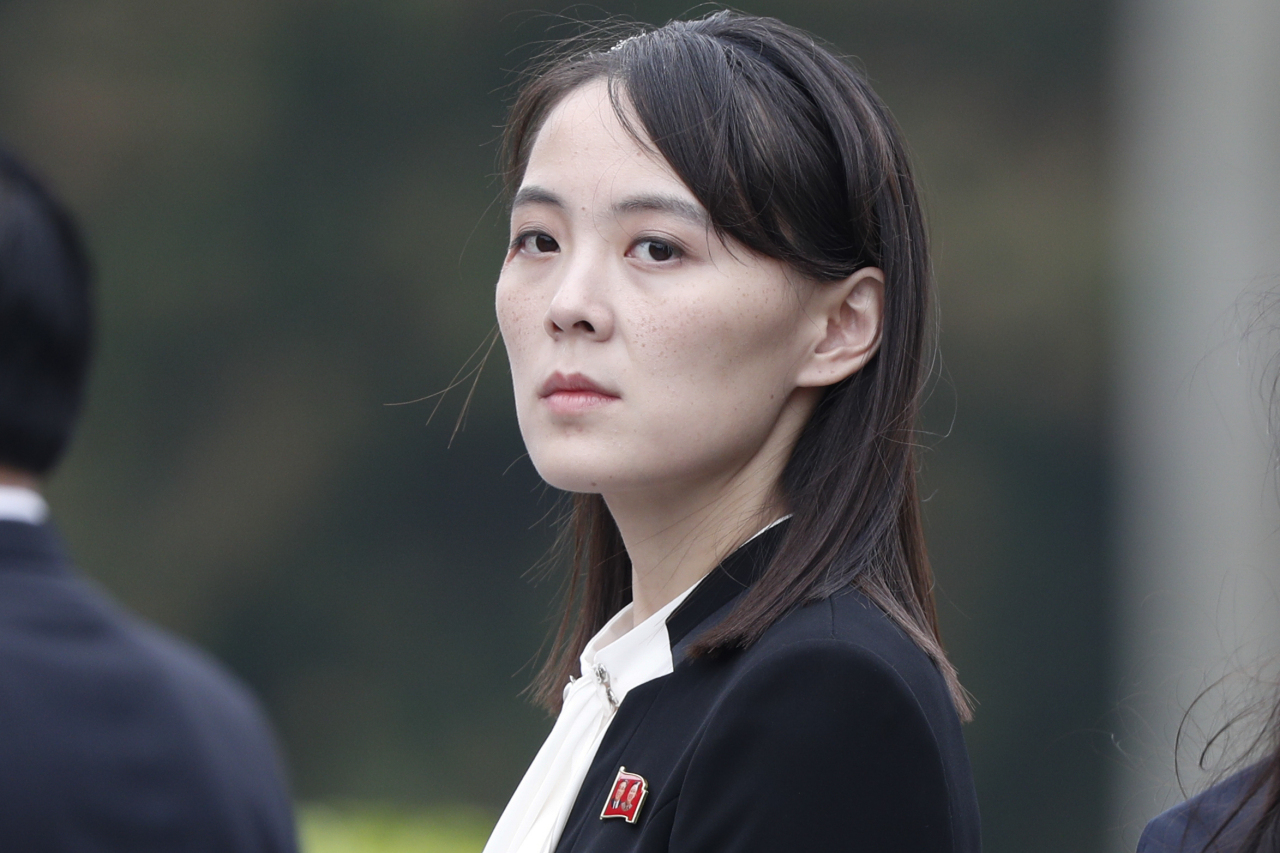S. Korea to legislate ban on anti-Pyongyang leaflet campaign after NK threats
By YonhapPublished : June 4, 2020 - 09:04

The government is working on a plan to legislate a ban on sending anti-Pyongyang leaflets into the communist nation, the unification ministry said Thursday, hours after North Korea railed against such leaflets and threatened to scrap a no-hostility military pact with the South.
The envisioned legislation is aimed at preventing chilly inter-Korean relations from deteriorating further, but enacting a law banning leaflet-sending could spark an outcry over the possible infringement of the right to freedom of expression.
The announcement came hours after Kim Yo-jong, sister of North Korean leader Kim Jong-un, issued a statement denouncing the flying-in of such propaganda leaflets as a hostile act that runs counter to peace agreements the two sides signed during summit talks of their leaders in 2018.
"Clearly speaking, the South Korean authorities will be forced to pay a dear price if they let this situation go on while making sort of excuses," she said in the statement carried by the Korean Central News Agency.
Unless the South stops such leaflets from flying across the border, the North could scrap a military tension-reduction agreement banning hostilities against each other, dismantle a shuttered joint industrial complex in the border city of Kaesong and shut down a joint liaison office, she said.
North Korean defectors and anti-Pyongyang activists have occasionally sent a large number of leaflets via giant balloons sharply criticizing the communist regime and its leader. These are often flown with one-dollar bills and USB memory sticks to get more North Koreans to pick up the leaflets.
The unification ministry said the leaflet campaign causes tensions and should be halted.
"Actually, most of the leaflets have been found in our territory, causing environmental pollution and increasing the burden on local people to get rid of them. ... Any act that could pose a threat to the life and property of those people should be stopped," ministry spokesperson Yoh Sang-key said.
"Taking into consideration relevant circumstances comprehensively, the government has already been mulling effective regulatory-improvement measures to fundamentally prevent such tension-causing acts near the border," he said.
He said that the government is considering legislation but declined to elaborate further.
In the military deal reached in September 2018, the two Koreas agreed to stop all kinds of tension-causing activities against each other.
During a summit held in April of the same year, the leaders of North and South Korea also agreed to cease all hostile acts and eliminate their means, including broadcasting through loudspeakers and the distribution of leaflets, in the areas along the border and transform the Demilitarized Zone (DMZ) that separates the two Koreas into a "peace zone."
A unification ministry official told reporters on condition of anonymity that the envisioned legislation would not be confined to address the leaflet issue, saying that it would address a broad range of matters necessary to implement summit agreements.
The government will do its utmost to gather opinions from the general public and experts in relevant sectors, while looking into concerns over its possible infringement on the right to freedom of expression, the official said.
The North Korean leader's sister pointed her finger directly at the anti-Pyongyang leaflets sent across the border earlier this week by a group of North Korean defectors. The leaflets, totaling about 500,000 and carried by balloons, criticized the North's leader for threatening to take "shocking actual action with a new strategic nuclear weapon."
She also called those defectors "human scum" and "rubbish-like mongrel dogs," urging South Korea to take every possible action, including enacting a law against such act without using "freedom of expression" as an excuse anymore.
"If they truly value the North-South agreements and have a will to thoroughly implement them, they should clear their house of rubbish, before thoughtlessly blowing the 'supporting' bugle," she said.
"Before making lame excuses, they should at least make a law to stop the farce of human scum to take thoroughgoing preventive measures against any inglorious things," she added.
South Korea's government has advised against sending such leaflets, citing concerns about the safety of residents in the regions where the leaflet-carrying balloons are launched because the North could take retaliatory military action on the areas.
Defector groups and anti-North Korea civic organizations have often ignored such an appeal, citing their right to freedom of expression. Under the current law, it is also impossible to ban the leaflet campaign.
The latest strongly worded statement came as inter-Korean relations have been stalled amid a stalemate in denuclearization talks between Pyongyang and Washington since the no-deal summit in February last year between the North's leader and US President Donald Trump.
In October last year, North Korea demanded Seoul withdraw all its facilities built at the Mount Kumgang resort on the east coast, saying it will build its own international tourist zone there. South Korea shuttered the joint tour project in 2008 after one of its tourist was killed by a North Korean guard.
South Korea closed the joint industrial complex in the North's border town of Kaesong in 2016 after Pyongyang's nuclear and missile provocations. The two Koreas agreed to resume the mountain tours and the industrial park, two major cross-border exchange projects, when things are met in their 2018 summits, but little progress has been made due to global sanctions.
Earlier this year, the two Koreas also temporarily shut down a liaison office in Kaesong due to the coronavirus outbreak. (Yonhap)








![[KH Explains] Hyundai's full hybrid edge to pay off amid slow transition to pure EVs](http://res.heraldm.com/phpwas/restmb_idxmake.php?idx=644&simg=/content/image/2024/04/18/20240418050645_0.jpg&u=20240419100350)







![[From the Scene] Monks, Buddhists hail return of remains of Buddhas](http://res.heraldm.com/phpwas/restmb_idxmake.php?idx=652&simg=/content/image/2024/04/19/20240419050617_0.jpg&u=20240419175937)

![[KH Explains] Hyundai's full hybrid edge to pay off amid slow transition to pure EVs](http://res.heraldm.com/phpwas/restmb_idxmake.php?idx=652&simg=/content/image/2024/04/18/20240418050645_0.jpg&u=20240419100350)

![[Today’s K-pop] Illit drops debut single remix](http://res.heraldm.com/phpwas/restmb_idxmake.php?idx=642&simg=/content/image/2024/04/19/20240419050612_0.jpg&u=)